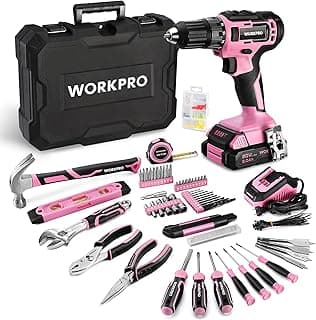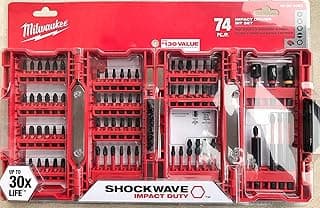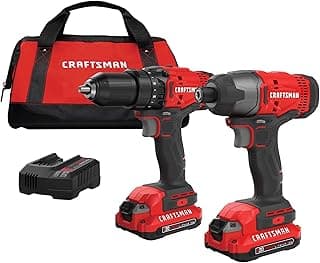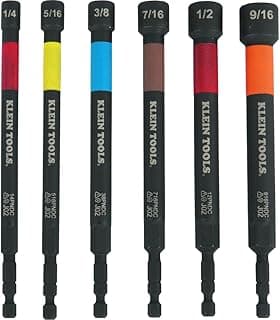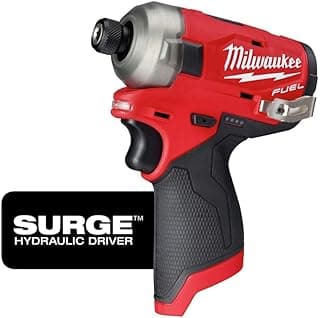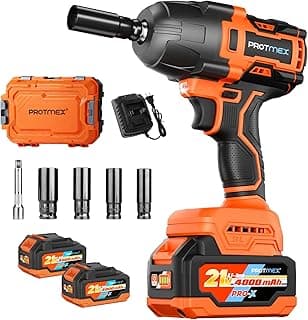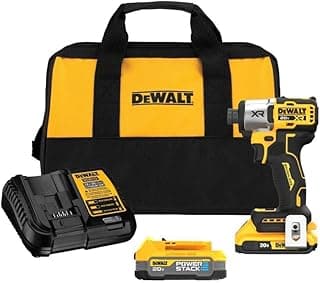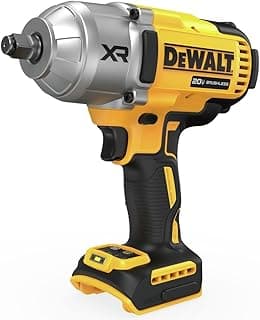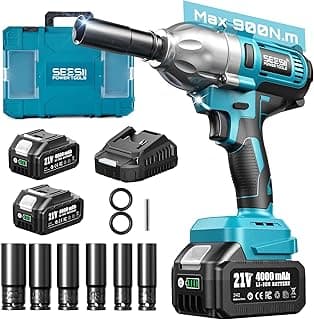Looking for the right tool to handle everyday projects around the house? A reliable drill can make all the difference, whether you are hanging shelves, assembling furniture, or tackling minor repairs. But here’s the catch—choosing the right one is not always easy. With so many models promising power and convenience, how do you know which option truly fits your needs? That’s where this best drill guide comes in handy. In this review, we break down the best drills for 2025, covering performance, durability, and ease of use. Need something more versatile? We also highlight the best drill set options designed to give you flexibility for multiple tasks. Keep reading—you’re about to discover which drill deserves a spot in your toolbox.
Top pick
Best Brushless Power: CRAFTSMAN V20 1/2 Inch Drill/Driver Kit
The CRAFTSMAN CMCD725D2 is a cordless drill powered by a 20V lithium-ion battery. It comes with a brushless motor for better efficiency and durability. With a maximum speed of 2000 RPM and two variable speed options, it handles both light and heavy-duty tasks. The kit includes two batteries, a charger, and a storage bag for convenience. Its compact size allows easier handling while maintaining solid drilling capacity in both wood and metal.
Users often highlight its reliable power delivery and long-lasting batteries, making it suitable for extended use. Experts note that the brushless motor technology adds longevity compared to brushed models. However, some find the weight slightly challenging during long projects.
This drill offers strong performance, reliable battery efficiency, and practical accessories, delivering excellent value for homeowners and DIY enthusiasts who need both power and durability.
Also great: DEWALT 20V Max Cordless Drill/Driver Kit
The DEWALT DCD771C2 is a compact 20V cordless drill designed for everyday home and workshop use. It offers a maximum speed of 1500 RPM with two-speed settings and delivers up to 530 inch-pounds of torque. Its 0.5-inch chuck supports versatile bit sizes, while the 1.3Ah lithium-ion battery ensures moderate runtime. The drill weighs just 3.64 pounds, making it easy to handle and maneuver in tight spaces.
Customers appreciate its lightweight design and solid torque for general household tasks. Experts note that while the compact size improves usability, the smaller battery capacity may not sustain heavy-duty use for extended periods. Still, it remains a dependable choice for quick and efficient jobs.
This DEWALT drill balances power, comfort, and portability, making it a practical option for DIY projects and light professional work. It offers good value for those who prioritize maneuverability without sacrificing essential performance.
Best Lightweight Option: BLACK+DECKER 20V MAX Matrix Cordless Drill/Driver
The BLACK+DECKER DMT120C is a 20V cordless drill built for convenience and portability. Its compact and lightweight design makes it easy to carry and suitable for quick household projects. The drill supports a maximum chuck size of 10 millimeters, offering basic functionality for wood and metal tasks. With a rechargeable lithium-ion battery, it ensures simple operation without the need for constant cord management.
Users value its ease of use and portability, noting it is well-suited for small repairs and light drilling tasks. Experts point out that its lower drilling capacity and plastic build make it less durable for heavy-duty applications. However, it remains a practical choice for beginners and casual DIY users.
This BLACK+DECKER drill is an affordable and portable option for light-duty projects. While not built for demanding jobs, it provides reliable performance for everyday household tasks where convenience and mobility matter most.
FAQs
What is better, an 18 volt or 20 volt drill?
The difference between an 18-volt and a 20-volt drill often comes down to marketing rather than performance. In reality, both use battery packs with nearly identical voltage levels. Some manufacturers advertise the peak voltage (20V), while others list the nominal voltage (18V). When it comes to power and capability, the two perform almost the same. For most homeowners, both options deliver more than enough torque for everyday drilling and driving tasks. The choice usually depends on brand preference and available tool compatibility within the same battery platform.
What size drill is best for home use?
For typical household projects, a drill with a 3/8-inch chuck size is the most versatile choice. This size accommodates a wide range of drill bits while keeping the tool compact and lightweight. A 1/2-inch drill can handle larger bits and tougher materials, but it may be bulkier than most DIY users need. Compact drills, especially those in the 12V or entry-level 18V category, are ideal for furniture assembly, hanging shelves, or light carpentry. If you want one drill to cover most home projects, a mid-size cordless drill strikes the best balance between power and maneuverability.
Is a brushless drill worth it for DIY?
Yes, a brushless drill can be worth the investment, even for DIY users. Brushless motors are more efficient, generate less heat, and extend the lifespan of the tool compared to brushed models. They also offer better battery performance, giving you more runtime per charge. While brushless drills tend to cost more upfront, their durability and reliability make them a smart choice if you plan to tackle frequent projects. For occasional light use, a brushed drill is sufficient, but if you value long-term efficiency, brushless is the better option.
Who makes the best quality drills?
Several manufacturers are known for producing high-quality drills. Brands like DeWalt, Milwaukee, and Makita consistently rank among the top for durability, power, and innovation. Bosch is also respected for its balance of professional-grade performance and user-friendly design. For homeowners on a budget, Ryobi and BLACK+DECKER offer reliable drills that cover basic needs without a steep price tag. Ultimately, the best brand depends on your priorities—whether you want professional-grade durability, battery system compatibility, or affordable reliability.
Conclusion
Choosing the best drills for home use ultimately depends on your projects, budget, and comfort level. Compact models are great for quick household fixes, while more powerful cordless options offer the strength needed for demanding tasks. Features like brushless motors, multiple speed settings, and ergonomic designs can make a big difference in performance and ease of use. By focusing on reliability, versatility, and battery compatibility, you can invest in a drill that not only meets today’s needs but also supports future projects. A well-chosen drill is more than just a tool—it becomes a long-term partner in every DIY or home improvement task.








